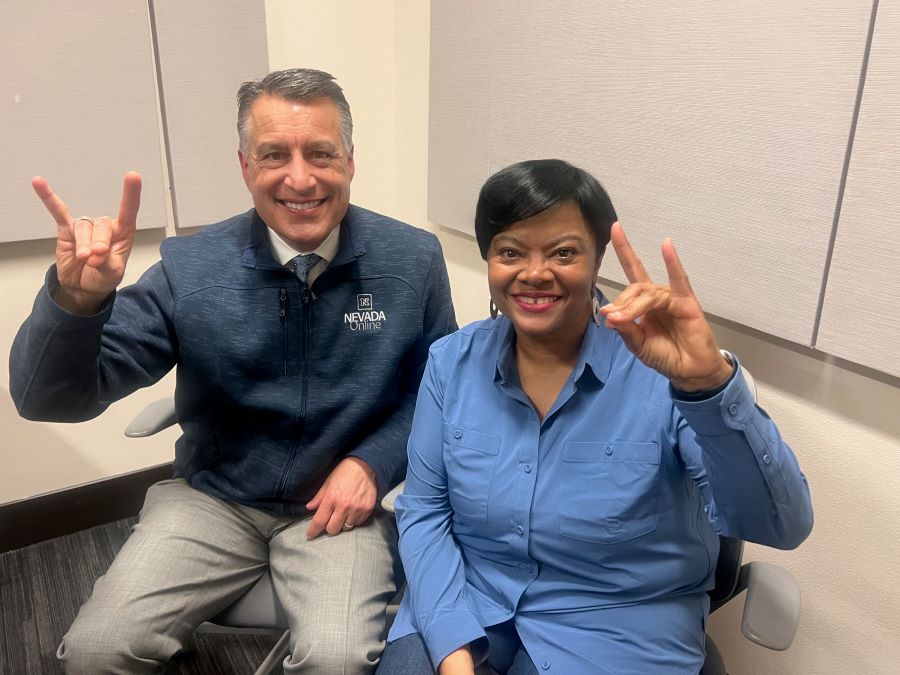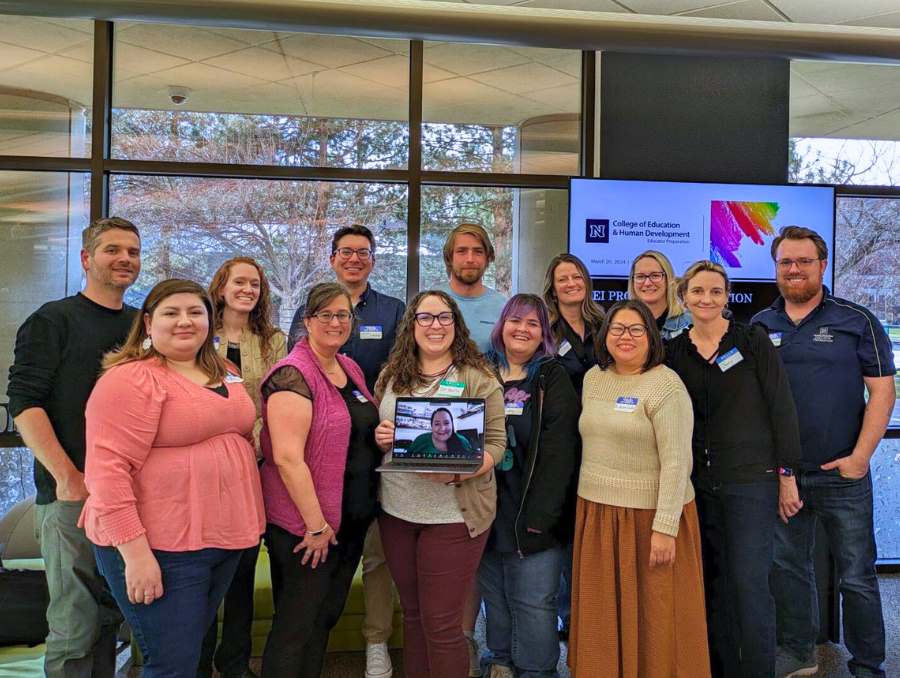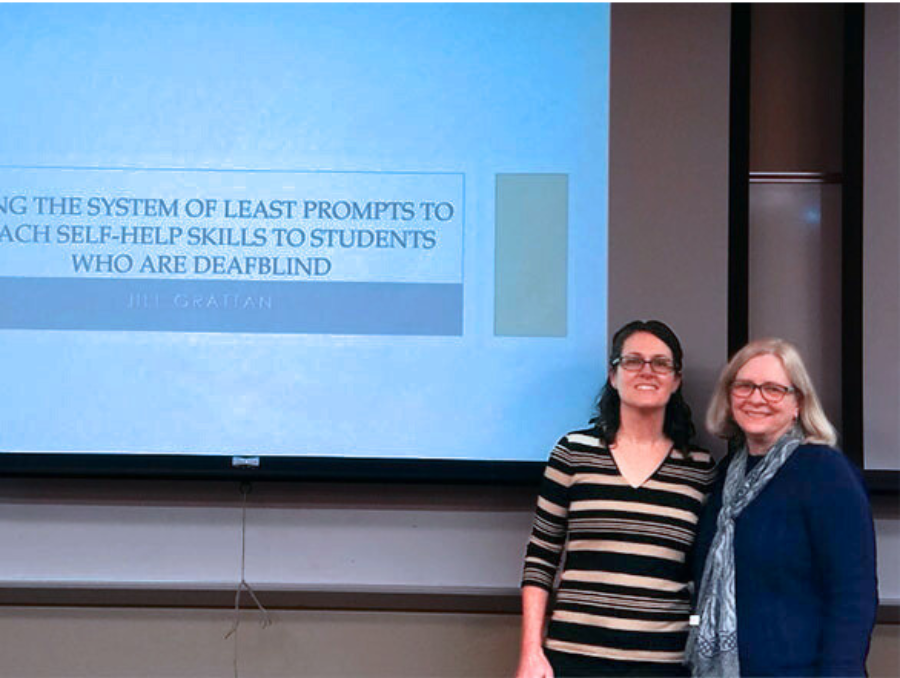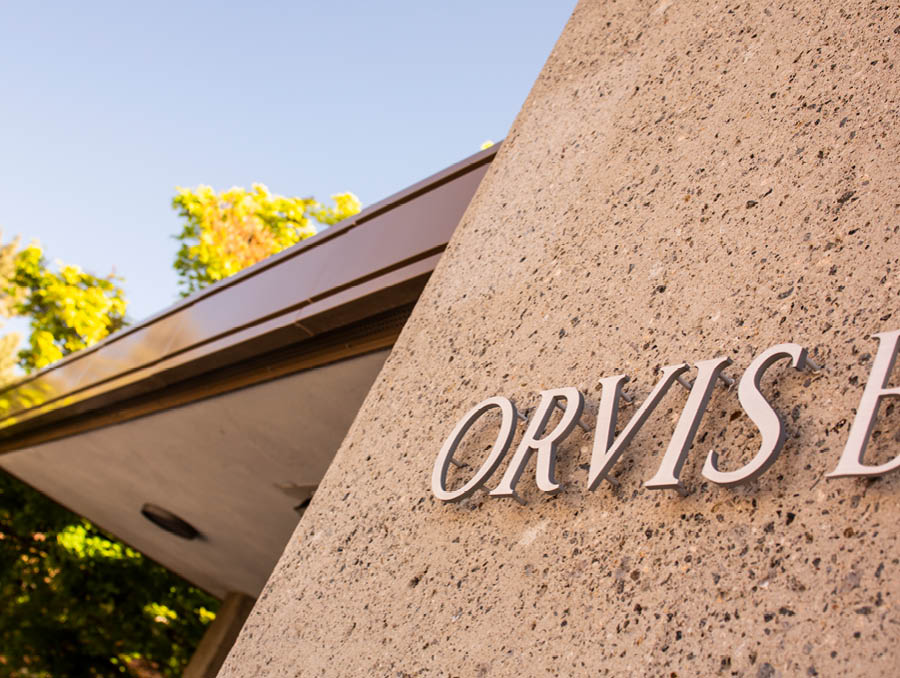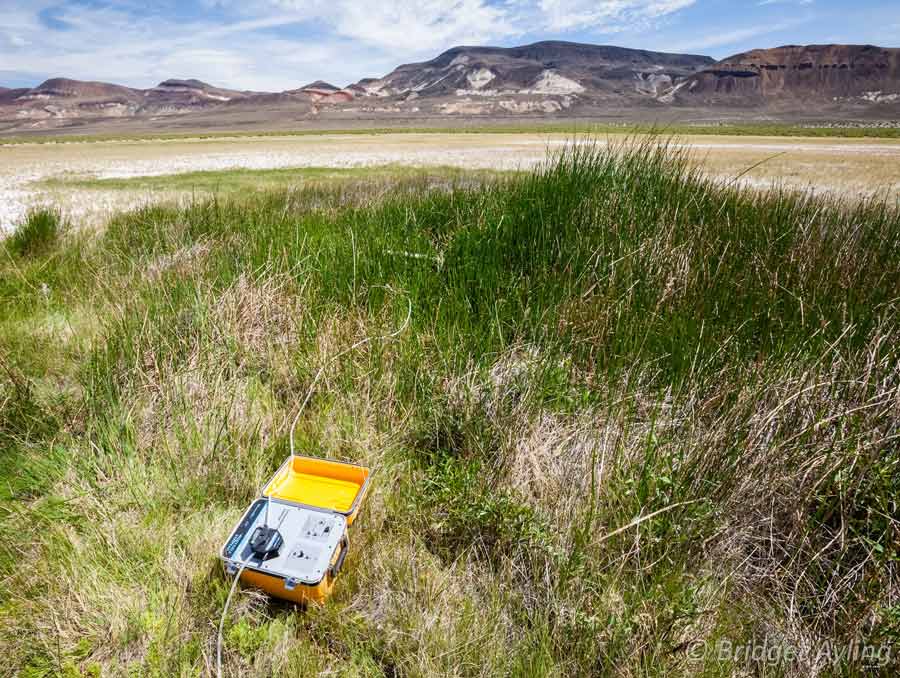Provost Marc Johnson used every inch of his very long stride Tuesday as he hurried across campus to the Graduate Student Lounge in the Joe Crowley Student Union.
Johnson was to fill in for a few minutes for President Milt Glick during Glick’s regular “Pizza with the President” meeting with students. Glick was still in a meeting with the investment committee of the Board of Regents.
Johnson found a room filled with more than 40 students, many of whom asked questions over the next hour about the campus and its overall health in the wake of ongoing state-mandated budget reductions.
Johnson ably handled all questions, and even took a moment to offer some fatherly advice – advice which seemed to resonate with the students, who expressed concern about the announcement earlier this year that the Writing and Math Centers would be closing in the wake of budget cuts.
At one point, Johnson was asked why anyone, given the sour nature of the economy, would want to use their college degree to enter a demanding, somewhat-lower-paying profession such as teaching.
Johnson didn’t hesitate, recalling a conversation he had with his son, who was leaning toward majoring in art while in college.
“Dad, I’m probably not going to make a lot of money if I go into art,” Johnson recalled his son saying.
“You’ve got to be happy your whole lifetime,” Johnson continued, smiling as he remembered the long-ago conversation, and the words of encouragement he had passed along to his son about following his heart rather than following the source of his next paycheck. “Study your passion because you are studying for the next 40 years.
“Think of college as a 40-year investment. You don’t want to go into something you hate. You want to go into something you love.”
Glick, who arrived not long after Johnson’s story, then added even more encouraging words for the students.
Not only would Nevada students be following their passion on the Nevada campus, Glick announced that they will soon be eating Panda in the Union as well … Panda Express, that is.
“The Panda lease has been approved (by the Board of Regents),” Glick announced with a broad smile. “That’s great news. We need more food here.”
There was plenty of food for thought during the hour-long discussion, as Johnson answered numerous questions about the University’s future plans.
Asked whether the Reynolds School of Journalism would be affected by budget cuts, Johnson noted that like all colleges, RSJ would undergo a 5 percent cut in its operating budget. He added that the school’s three endowed chairs are open, “And as long as these chairs are endowed, they can recruit these positions.” He said that as a matter of policy, University administration reviews all personnel needs, and “we’re not replacing anyone without reviewing the need. We’re still sitting on more than 40 faculty positions that are open, and only 10 are under search. We are managing part of our uncertainty with the budget by holding positions open.”
Asked about discussions regarding the future of majors in French and German, Johnson said that with 10 students currently majoring in German and 21 majoring in French, College of Liberal Arts Dean Heather Hardy was asked to develop an assessment of the future of each major. Johnson said French has recently shown signs of growth in terms of majors as well as students from other disciplines taking classes in French. “They’re getting more toward the efficient delivery of classes,” Johnson said, adding that there is small likelihood that the French major would be eliminated. He said a proposal for German would turn the German major into a German Studies degree by combining German language courses with other courses related to German.
Of the announcement to close the Math and Writing Centers, which Johnson estimated will save the University about $300,000 per year, Johnson said students as well as the faculty and administration have been working on alternative programs – including free tutoring offered by students to their fellow students – to ensure that students’ needs continue to be met. “Typically, when we look at a program, we don’t look at it for immediate closure,” Johnson said. “We look at it in terms of alternatives.” He said the overriding goal of all budget cuts has been, from the perspective of students, to not impact academic offerings in ways that would impair students’ ability to graduate in four years. “We are doing everything possible to get the classes you need to graduate in four years,” he added.
Many of the students expressed concern about reports of budget cuts, particularly a media report that suggested 25 percent tuition increases were in the immediate future. Glick answered the question firmly: “It is very unlikely you will see a 25 percent increase this year.” Johnson added that a 5 percent increase plus a $5 surcharge will be in effect for fall 2009. “We are only beginning to discuss additional tuition increases,” Johnson added.
Johnson reiterated the news that Glick delivered on Monday during a town hall meeting with the campus, that the University is about $10 million shy of reaching $35 million in budget reductions mandated by the state. “We’ve got $10 million to go,” Johnson said, adding that unlike last winter, when the University had about two weeks to plan for the first round of budget cuts totaling 4.5 percent of the institution’s $221 million state-appropriated budget, the process this time around should be more strategic. Beginning on Jan. 1 and continuing through March 31, he said the campus will engage in the formulation of strategic plans to identify areas of strength as well as to identify areas for potential reductions.
“We’ve been able to have some thoughtful conversations, and they will continue with the strategic planning exercise,” Johnson said.
Johnson also expressed optimism that the state economy will eventually freshen. He noted that the Nevada Economic Forum, a group of business leaders that projects state revenues relative to the state budget, suggested yesterday that state revenues for Fiscal Year 2011 will actually improve after a downturn in revenues for 2010.
With such a prospect to look forward to, Johnson said the upcoming strategic planning process will be critical to the University’s future: “We want to grow back to the modern University.”
Glick agreed, making sure that all the students in attendance Tuesday understood that they were important pieces to Nevada’s economic future.
“To some extent, how the state’s economy grows back is in your hands more than ours,” he said, adding that a growing educated workforce will be critical to Nevada’s efforts to diversify its economy.





